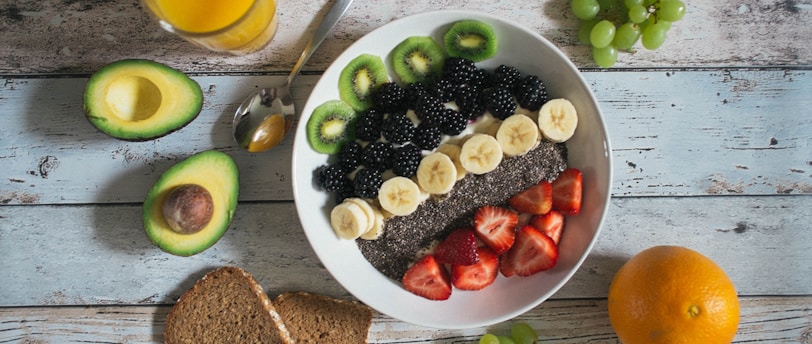Vegan Calorie Calculator [Plant-Based]
Calculate your optimal vegan calorie intake with our free plant-based nutrition tool. Get personalized macronutrient targets and health recommendations for balanced vegan diets.
Check More Free Tools:
Try our Menopause Calorie Tracker [Hormone-Friendly]


Free Vegan Calorie Calculator - Personalized Plant-Based Nutrition Planning
Understanding Calorie Needs in Vegan Nutrition
Proper calorie intake forms the foundation of any healthy diet, especially in plant-based nutrition. Unlike omnivorous diets, vegan nutrition requires strategic planning to ensure adequate energy intake from diverse plant sources. Calorie balance directly impacts energy levels, weight management, and metabolic health. Our Vegan Calorie Calculator uses clinically validated equations to determine your Total Daily Energy Expenditure (TDEE) based on individual factors like Basal Metabolic Rate (BMR), activity level, and health profile.
Key Terms Explained
Basal Metabolic Rate (BMR):
Calories burned at complete rest (varies by age, gender, height, weight)Total Daily Energy Expenditure (TDEE):
BMR × Activity Multiplier = Maintenance CaloriesMacronutrient Distribution:
Plant-Based Protein: 15-25% of calories (legumes, tofu, tempeh)
Complex Carbohydrates: 50-60% of calories (whole grains, fruits)
Healthy Fats: 25-35% of calories (nuts, seeds, avocados)
Health Implications of Vegan Nutrition
While plant-based diets offer significant health benefits like reduced cardiovascular risk and improved metabolic markers, inadequate calorie intake can lead to:
Common Symptoms of Inadequate Calorie Intake:
Persistent fatigue
Unintentional weight loss
Hair thinning
Amenorrhea in women
Compromised immune function
Diagnostic Considerations:
Blood tests: B12, Iron (ferritin), Vitamin D, Complete Blood Count
Body composition analysis: DEXA scans or bioelectrical impedance
Dietary recall assessment: 3-7 day food journals
How Our Vegan Calorie Calculator Works
Our tool uses the Mifflin-St Jeor equation - the most clinically accurate BMR formula - with vegan-specific adjustments:
Calculation Process: 1. Collects anthropometric data (age, gender, height, weight) 2. Adjusts for activity level (Sedentary to Extremely Active) 3. Incorporates health factors: - Medical conditions affecting metabolism - Activity patterns - Special nutritional needs 4. Generates personalized targets: - Daily calorie needs - Protein/Carb/Fat breakdown - Health risk assessment
Interpreting Your Results
Color-Coded Health Indicators:
Green Zone (Optimal): Calories align with health goals
Yellow Zone (Caution): Moderate deficit/surplus
Red Zone (Risk): Extreme imbalance requiring intervention
Macronutrient Guidance:
NutrientVegan SourcesOptimal RangeProteinLentils, Tempeh, Seitan1.6-2.2g/kg body weightCarbsOats, Quinoa, Sweet Potatoes45-65% of caloriesFatsChia Seeds, Walnuts, Avocado25-35% of calories
Health Optimization Strategies
Treatment Options for Common Vegan Deficiencies
Protein Insufficiency:
Combine complementary proteins (rice + beans)
Consider pea protein supplementation
Micronutrient Gaps:
B12: Fortified nutritional yeast (2.4mcg/day)
Iron: Vitamin C-rich foods with plant iron sources
Omega-3s: Algal oil supplements (250mg DHA/EPA daily)
Preventive Measures for Long-Term Health
Regular blood work: Every 6-12 months
Bone density scans: For postmenopausal vegans
Dietary diversification: 30+ plant foods weekly
People Also Ask: Vegan Nutrition Concerns
Q: Can you build muscle on a vegan diet?
A: Absolutely. Studies show equivalent muscle growth with adequate plant protein (1.6g/kg/day) and resistance training.
Q: Do vegans need calorie tracking?
A: Initially yes, to ensure energy adequacy. Most long-term vegans develop intuitive eating patterns.
Q: How do vegan calories differ from omnivore?
A: Plant foods typically have lower calorie density, requiring larger volumes for equivalent energy.
Q: What's the biggest nutritional risk for vegans?
A: Vitamin B12 deficiency, which can cause irreversible neurological damage without supplementation.
Scientific Validation
Our calculations incorporate evidence from:
American Dietetic Association Position Paper on Vegetarian Diets
Framingham Heart Study nutrient correlations
NHANES data on plant-based diet outcomes
Cochrane reviews on vegan nutrient bioavailability
Using Your Personalized Report
The generated PDF report includes:
Your calculated calorie/macronutrient targets
Medical interpretation of results
Customized food recommendations
Supplementation guidance
Long-term monitoring schedule
Disclaimer: This tool provides educational estimates only. Consult a registered dietitian or physician before making dietary changes, especially with medical conditions.
